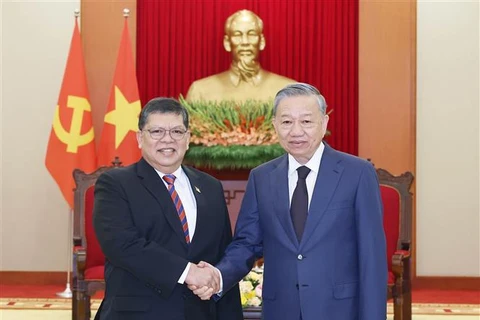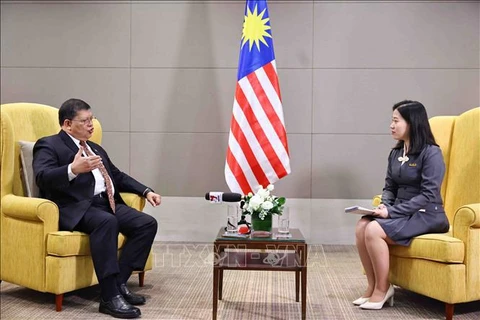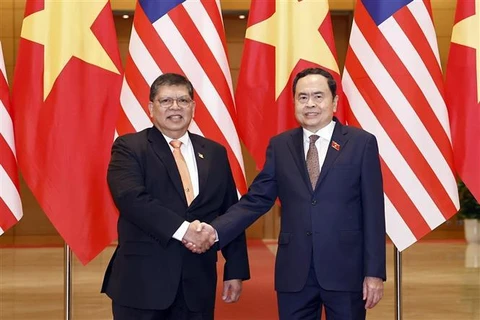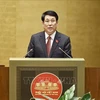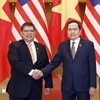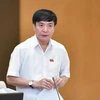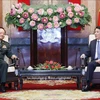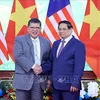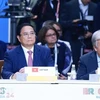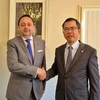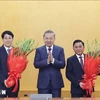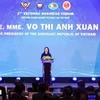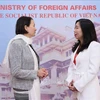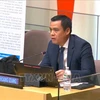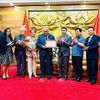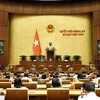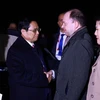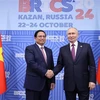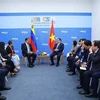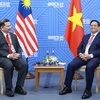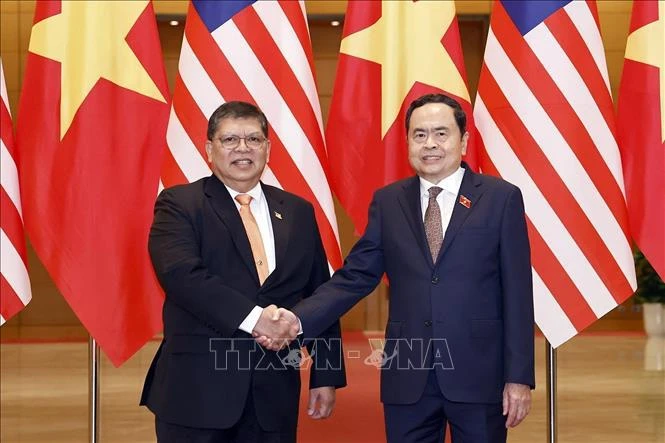
Kuala Lumpur (VNA) – The freshly concluded official visit to Vietnam by Speaker of the Malaysian House of Representatives Tan Sri Dato' Johari Bin Abdul could be considered a new milestone in the two countries’ relations, said Prof. Dr Awang Azman Awang Pawi from the Kuala Lumpur-based University of Malaya.
Under the leadership of Prime Minister Anwar Ibrahim, Malaysia’s foreign policy has witnessed new vitality, especially in the enhancement of the country’s relations within the Association of Southeast Asian Nations (ASEAN). Vietnam is one of the ASEAN members with which Malaysia has long-standing ties, which were upgraded to a strategic partnership in 2015. Bilateral relations are marked by increasingly intensive economic connections, strengthened diplomatic cooperation, and the shared commitment to resolving regional challenges. Vietnam, as one of the rising countries in ASEAN, holds an important position in Malaysia’s foreign policy, he said.
Considering the visit by Johari Bin Abdul, wrapped up on October 25, as a new milestone in bilateral relations, the expert perceived that the trip not only emphasised the political will to enhance the two countries’ ties but also took place on the threshold of 2025, when Malaysia will hold the Chairmanship of the ASEAN Inter-Parliamentary Assembly (AIPA).
During the visit, the Malaysian and Vietnamese leaders had active and productive discussions, focusing on such main cooperation areas as economic growth, energy security, and parliamentary diplomacy.
The strategicness of the Malaysia - Vietnam relations is reflected in the ongoing parliamentary discussions and the possibility of signing a cooperation agreement between the two legislatures. Once completed, the agreement will further institutionalise legislative cooperation, boost parliamentary diplomacy, and promote common governance priorities. Such high-level engagement indicates a shared vision for the future in which both Malaysia and Vietnam look towards capitalising on their respective strengths to secure mutual benefits within the ASEAN framework, according to Awang.
Mentioning new cooperation areas that both are interested in, he said the Anwar Ibrahim administration has put considerable focus on the settlement of challenges like food security and renewable energy in the region. These issues become a basis for cooperation as both countries are seeking to reduce their dependence on external sources and better tap into their own resources. The scholar elaborated that PM Anwar Ibrahim has shown support for a regional approach to resolve the issue of food security and called for greater cooperation among ASEAN countries to guarantee self-sufficiency in food production. Meanwhile, Vietnam, boasting a long-standing agricultural sector and large food production capacity, is viewed as a main partner in this effort.
He believed that by sharing expertise and resources, Malaysia and Vietnam can work together to enhance food security in ASEAN, ensuring that member countries can rely on one another to meet food demand amid crises. This partnership matches Malaysia’s broader target of promoting integration and resilience in the region.
In addition, renewable energy is another focus of bilateral collaboration, Awang went on, noting that both countries have rich natural resources that could be tapped for clean energy production. The Anwar Ibrahim administration advocates the idea of creating a regional energy network where ASEAN countries can share their excessive energy, promoting sustainable development and energy security across the region.
Such initiatives not only help consolidate bilateral ties but also contribute to ASEAN’s goal of transitioning to clean energy and minimising climate change impacts, he added.
He held that through collaboration in these important spheres, Malaysia and Vietnam could become examples for other ASEAN members in cooperating to resolve common challenges in the region.
In the current period, the two countries’ relations have reached a new height under the leadership of the Anwar Ibrahim Government, and they are being nurtured by the strategic cooperation and shared commitment to resolving regional challenges. As Malaysia is about to serve as ASEAN Chair, its ties with Vietnam will have a crucial role to play in promoting a prosperous and sustainable future for the entire region, according to the expert./.
